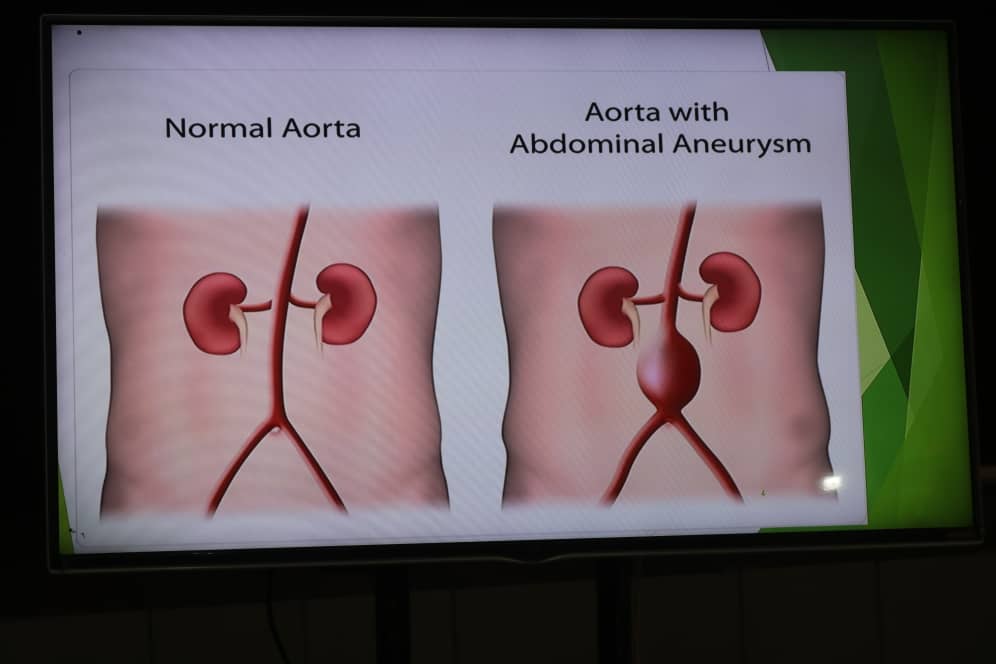By Tina Amanda
Medical experts from the University of Port Harcourt Teaching Hospital (UPTH) have cautioned that persistent ulcer-like pain could be an early warning sign of ovarian cancer.
This revelation was made during the hospital’s grand rounds themed “Management of Infra-renal Abdominal Aortic Aneurysm Co-existing with a Huge Ovarian Mass: A Multi-disciplinary Team Approach.”
Speaking at the event, Consultant Gynaecologist, Professor Nyengidiki Kennedy, explained that ovarian cancer often presents with non-specific symptoms, including pain that can mimic an ulcer.
“Many patients believe they have ulcer when they experience chest or abdominal pain. However, these symptoms could also indicate stomach cancer or ovarian malignancy”.
Professor Nyengidiki emphasized that not all ulcer-like symptoms are related to gastric issues.
“When people experience chest pain, they often assume it’s an ulcer. There are specific diagnostic steps to confirm an ulcer. On the other hand, some symptoms that resemble ulcer pain could actually be related to ovarian cancer,m”.
He also stressed the importance of early diagnosis in successfully treating ovarian cancer.
“Ovarian cancer is not a death sentence if caught early. With proper health-seeking behavior and timely evaluation, cancers can be identified and treated effectively.
“For stage one ovarian cancer, the five-year survival rate is nearly 90%. At UPTH, we have the capacity to provide curative treatment for such cases.”
He urged the public to seek professional healthcare advice when experiencing persistent or unusual symptoms, as early detection significantly improves treatment outcomes.
The Chairman of the Medical Advisory Council (CMAC) at the University of Port Harcourt Teaching Hospital (UPTH), Professor Datonye Alasia, has emphasized the hospital’s provision of multi-disciplinary services, which enable complex surgeries often sought abroad to be performed locally.
Professor Alasia explained that UPTH brings together specialists from various fields to form teams that perform intricate surgeries simultaneously, reducing both economic costs and health risks.
Also Read: POWA National President empowers women with business start-ups In Rivers
“You can imagine the complications if a patient had to undergo one surgery and then return later for another. By bringing different specialties together as a team, we can perform two complex surgeries at the same time on the same day.
“The risks involved in having two surgeries on separate days would essentially be doubled.”
Professor Alasia further urged other healthcare facilities to adopt the multidisciplinary team approach, noting its effectiveness in improving patient outcomes while saving costs and minimizing surgical risks.
Dr. Amadi Christian, a cardiovascular surgeon at the University of Port Harcourt Teaching Hospital (UPTH), said it is important for early diagnosis in improving patient survival rates. Stressing that proper diagnosis is crucial, particularly for conditions like ulcers and aortic aneurysms.
According to Dr. Christian, it is not enough for patients to assume they have an ulcer without a thorough medical examination.
“Nobody should say they have an ulcer without making a diagnosis. It’s not enough to go to the hospital and be told by a doctor that you have an ulcer. Only when there are signs pointing to an ulcer can it be confirmed”.
He further explained that if initial treatment for suspected ulcers does not resolve the issue, patients should consult a specialist or gastroenterologist for an endoscopy.
He warned that serious conditions such as stomach cancer could be mistaken for ulcers, leading to delayed treatment and worse outcomes. Adding the time such patients undergo proper tests may be too late for effective treatment.
Dr. Christian also highlighted the risk of aortic aneurysms, a condition where blood vessels become abnormally enlarged, which can lead to a life-threatening rupture. He urged individuals to seek medical attention if they notice unusual symptoms, such as persistent abdominal pain or ulcers in the legs.
“For aortic aneurysms, some people may not show symptoms, while others might experience abdominal pain. If left untreated, this condition can be fatal”.
To prevent complications, Dr. Christian advised that those with hypertension should ensure their blood pressure is well-managed. He also urged individuals with a family history of such conditions to remain vigilant and seek medical advice before complications arise.




